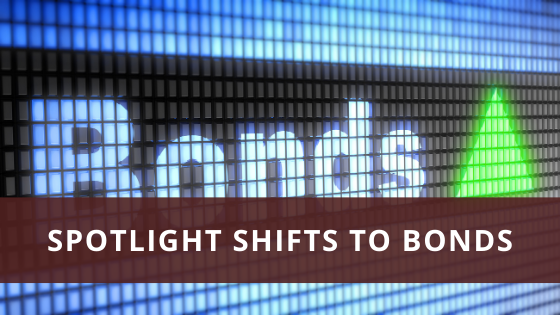
One time-tested principle of investing is, “when bond yields move higher, bond prices tend to move lower.”
Investors are doing a “double take” on the 10-year Treasury yield, which recently topped 1.5% — its highest level in about a year. With the increase in yield comes a drop in price.1
For some, the first time they experience a change in bond prices is when they open their monthly statement and review their investments.
But before you check your February statement, here is some background that may help put the most recent move in long-term rates in perspective.
The interest rate on the 10-year Treasury dropped steadily in the first half of 2020 and bottomed at 0.54% in late July. While rates remain at low levels, the yield on the 10-Year Treasury has nearly tripled in the past seven months. That’s a significant increase in a relatively short period.2
Bond yields may increase for several reasons—some of them good (strong economic growth) and some of them concerning (accelerating inflation). Bond investors are anticipating a pick-up in economic growth and appear concerned about inflation due to the Fed’s easy monetary stance and federal fiscal spending in response to the pandemic.
The question is, at what point do stock investors begin to worry about higher bond yields. That answer may be if 10-year Treasury yields start to rival the dividend yield on the S&P 500.3
Remember, the Federal Reserve has reiterated its support for its zero-interest-rate policy, but much of the Fed’s influence is on short-term interest rates. Market forces play a larger role in determining long-term rates like the 10-year Treasury.4
Bonds can play an important part in any portfolio, but like any investment, periods of volatility are expected. If you’re concerned about the outlook for bonds or the macro-economic trends behind the bond market’s rally, please give us a call at our Charlotte office at (704) 248-8549, or our Clemmons office at (336) 391-3409. Or, click here to request a no-cost, no-obligation meeting. We’d welcome the chance to hear your perspective, and hopefully, we can provide some guidance.
[SOURCES & ADDITIONAL DISCLOSURES]
- U.S. Department of Treasury, February 26, 2021
- CNBC.com, February 26, 2021
- Multpl.com, February 26, 2021
- The Wall Street Journal, February 24, 2021
- Copyright FMG Suite 2021







